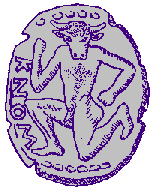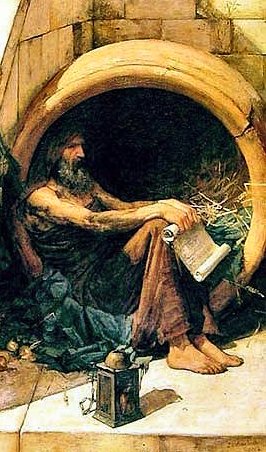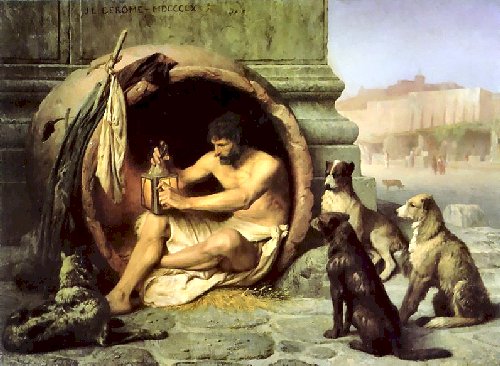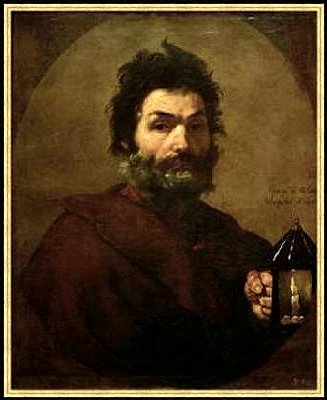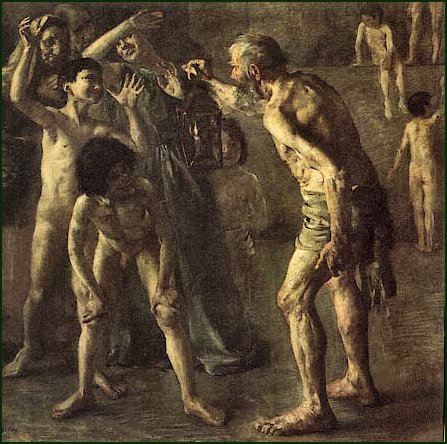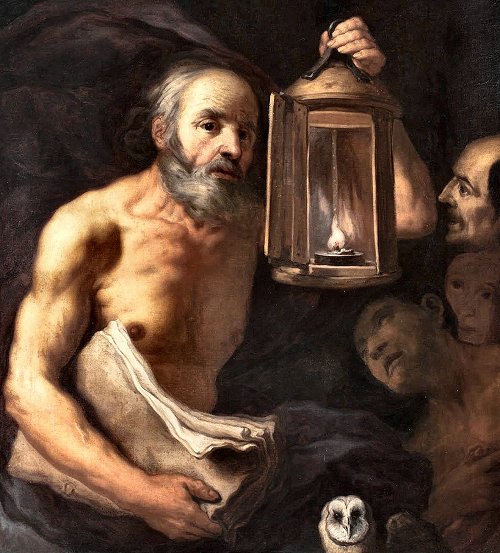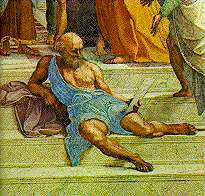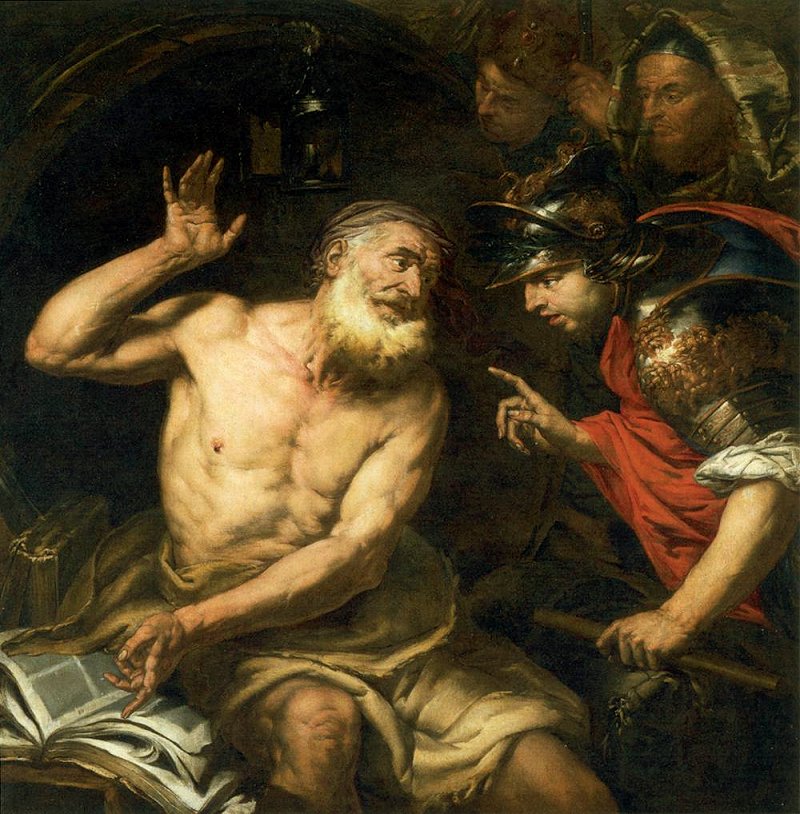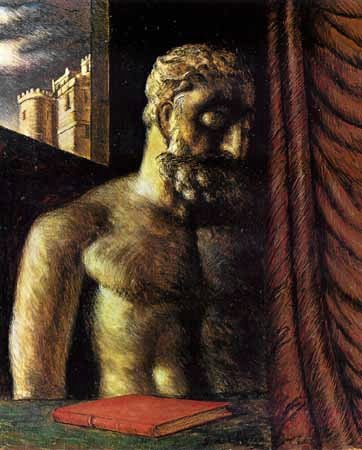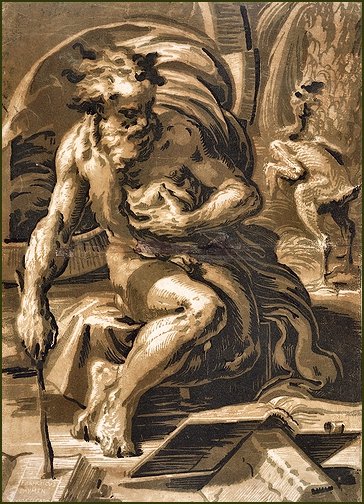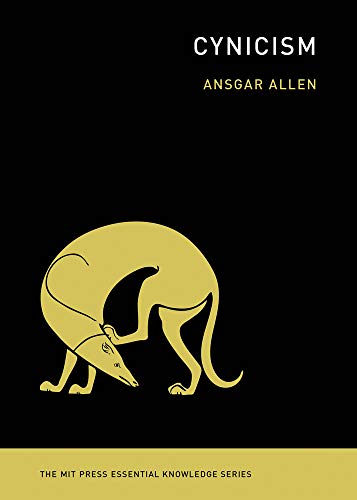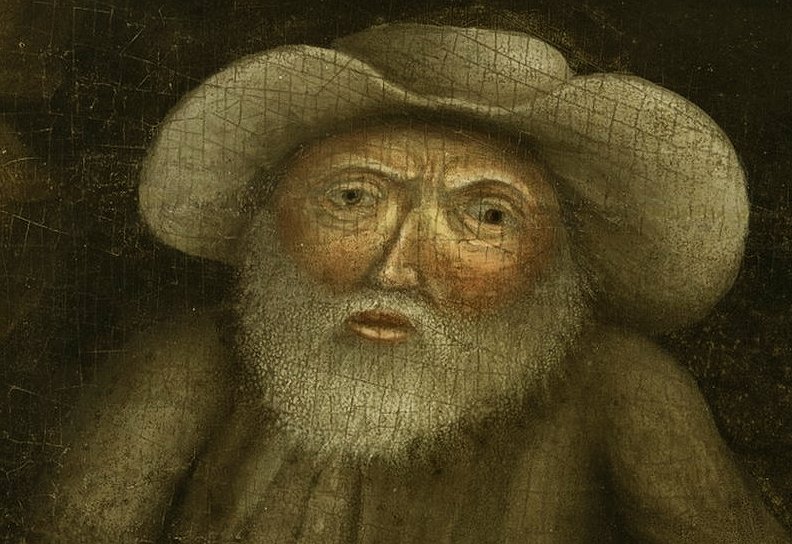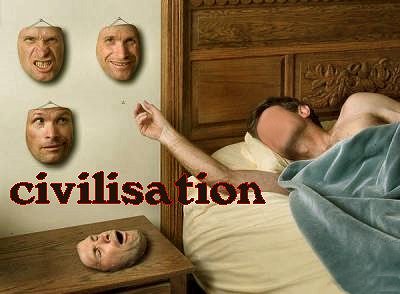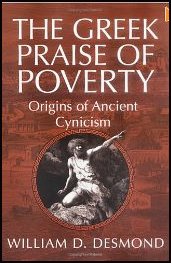POETRY
face at the bottom of the world
i
am and am not:
fragments of rumi
dispatches from the war against the world
french poems in honour of jean genet
gloss on rilke's ninth duino elegy
villon's dialogue with his heart
vasko
popa:
shepherd of wolves ?
genrikh
sapgir:
an ironic mystic
BETWEEN POETRY AND PROSE
the maxims of michel de montaigne
maxims in hungarian translation
nice
men and
suicide of an alien
the most terrible event in history
TRANSLATIONS
SHORT STORIES
![]() waybread tg
waybread tg
ESSAYS & MEMOIRS
Antisthenes' speech at Xenophon's banquet
ancient violence
in the amazon
'original
sin' followed
by
crippled consciousness
a
gay man's guide to
soft-willy sex
londons
of the mind
& dealing death to the caspian
a muezzin from the tower of darkness
satan
in the groin
womb of half-fogged mirrors
shoplifting in britain & america
a holy dog and a dog-headed saint
vacuum of desire: a homo-erotic correspondence
PHOTOGRAPHS
MUSIC
three movements of melting ice
the
church of lazarus
and the holy dogs
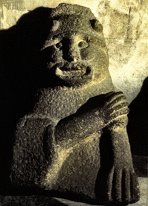
field guide to megalithic ireland
|
Zenzen |
![]()

"Oh, we shall permit them even sin. They are weak and helpless and like children will love us because we allow them to sin. We'll tell them that every sin will be expiated, pardoned - if it is done with our permission."
Dostoyevski, THE GRAND INQUISITOR.
It is instructive how 'The Love of God' fills so many millions with intolerance, rage and hate.
By the third century A.D. the Tunisian Tertullian (one of the 'fathers of the Church' who turned Pentecostal and thus was never sainted) was writing:
'The
greatest joy of Heaven is in watching the torments of the damned in
Hell
-
a spectacle far more pleasing than any upon Earth.'
(De Spectaculis)
Religion seeks to impose mere purpose upon an ineffably purposeless world.
Anyone can dream up a religion, but only those cults which are most amenable to hypocrites become powerful and divide up & rule the world.
Atheism, of course, is a kind of religion, a diffused but minor one.
If God had not wanted us to be cannibals he would not have made us delicious to eat, especially when very young.
The most evil of beings are soldiers, who kill people and do not eat them.
It is said that when St Columba came from Ireland to Iona (off the Scottish west coast) and began building monasteries there and on neighbouring islands, the walls of one of them kept falling down. Declaring that this was because the customary sacrifice hadn't been made, Columba's monks demanded that a human being be buried beneath the foundation stone. The saint allowed the rite to be performed, and a monk named Oron was chosen by lot to be the sacrificial victim. After he was buried under the stone, the wall-collapses ended.
Oron's name remains in the name of the inner Hebridean island of Oronsay, on which are the 14th century ruins of an ancient priory reputedly founded by St Columba. A teaching monk or hermit, Oron may not have been chosen by lot to die - for he was condemned by Columba for his teaching that monks should castrate themselves...
"The
only paradises
are those we have
destroyed."
Prayer is the childish attempt to address the confusion that religions create.
STUPID PEOPLE :
STUPID GODS.
(NOBODY BELONGS.)
Religion
is
at best
the politics of the supernatural,
and
at worst
the economics of superstition.
Does anyone want to know 'the Truth' ?
Almost
nobody, because we 'feel in our bones' that it is too terrible
to imagine, much less accept.
We prefer comfortable lies and half-truths.
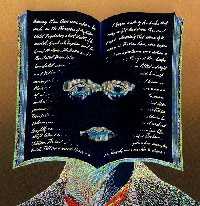
The Zen of Integrity
DIOGENES OF SINOPE
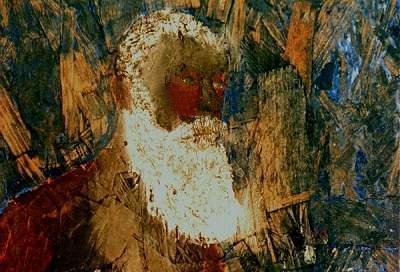
ΑΠΟΘΑΝΕΙΝ
ΘΕΛΩ
- The Cumæan Sybil
Mystical experience
is chemicals in brains.
God might be dog-shit on your shoe.
Heaven for holy rats is drains.
Hell is what we made and make and do.
-
Hymn to Diogenes
|
Most philosophy - and all theology - is sophistry. Apart from Schopenhauer and Nietzsche, there have been very few true, open-minded, "blue-sky" philosophers since Classical philosophy and Seneca, the unfortunate Stoic from Córdoba, were finally destroyed by the emperor Nero. Of the pre-Christian Greek philosophers, by far the truest and most radical was Diogenes, who is thought to have died in 320 BCE. Like his near-contemporary, Pyrrho, he disdained writing. He also disdained rhetoric - the hallowed Greek system of reasoned debate and persuasion which has since 'Classical' times inspired councils and cabals, and, of course, modern parliaments. His philosophy was based on moral outrage, and did not allow for sordid compromise between competing 'interests'. He was, of course, the only Classical philosopher not to rely on slaves and a slave economy. To this day, academic philosophy is a luxury jealously guarded by intellectual élites, who, like all élites (Diogenes would have agreed) are both contemptuous and contemptibly dependent on an underclass somewhere in the world. It can be fairly assumed that he was not a member of any of the dog-owning classes. A self-proclaimed anti-nationalist 'citizen of the world', he was, in part, a performance artist who spoke truth to power. The most celebrated
son of Sinope, a Greek colony on the largely-Scythian Black Sea
coast of Turkey (modern Sinop, whose towers still stand, unlike
those of Trebizond to the east - and which has been chosen as
a site for a nuclear power-station), Diogenes was the founder
and most famous of the Cynics - a Zen-like non-School of
anti-Philosophy expounding and embracing an ascetic and transcendental
nihilism. He expanded the teachings and world-view of his slightly
older contemporary, Antisthenes,
a follower of Socrates whom he probably never met and whom he
likely would have outraged. His self-description as 'doggish' (kynikos, cynic) might well have been a sly reference to priggish Plato's assertion in Book II of The Republic that the ideal Guardian (or dictator-mayor) of the ideal city-state should be 'truly philosophical' like a well-bred dog which is also spirited, fast, and strong. But public poverty and ignominy were at the centre of the Diogenean message, allied to an uninhibited canine curiosity. Like a dog assiduously investigating the qualities of other dogs via their urine and genitals, he is famously said to have gone around Athens with a lantern by day, vainly looking for an honest personality. He would have agreed with Khayyám that society is merely knots of people on puppet-strings of systems of belief. It is likely that he disdained to write any of his ideas down. In any event, all our information comes (like our information on Jesus of Galilee) second-hand at best, many of the anecdotes coming from Roman authors many centuries later, and some, much later again, from Muslims who saw Diogenes as a proto-Sufi.
A major source of information (and legend) about Diogenes is the third century (AD) Roman doxographer Diogenes Laertius (as disorganised as he was gullible), from whom much that follows is taken. Some of his stories about Diogenes are suspiciously similar to stories about the many other figures he describes in his ten-volume Lives of the Ancient Philosophers. The "Cynicism" of ancient Greece and Rome did not have the particular opprobrium of heartlessness that it has today: on the contrary, it was a passionate commitment. The term comes from the Greek word for Dog : the Cynic School was a school for dogs - wiser, more spontaneous, honest and more down-to-earth than the sophists whom Diogenes despised, and amongst whom he counted Plato. He seemed to regard Socrates as disingenuous in his claim that he knew nothing and that no-one knew more than he, but nevertheless pushed the Socratic dialectic to a logical conclusion. It was the hairy-shouldered (and legally-bigamous) Socrates, of course, who was charged with negativism: 'moral corruption of the youth' of an Athens which was then under a Spartan reign of terror. He was democratically (if not justifiably) condemned to drink the required cup of hemlock. Diogenes the Despiser, far more radical in his views at a less dangerous (and less-democratic) point in history, was far more easily-ignored. He revelled in his canine sobriquet, and, of course, he had his kennel to live in: the 'tub' (pithos) which was in fact an earthenware barrel or cistern. I have recently seen a Spanish wine-vessel in a Garden Centre in SW France, whose lip is 50 cms in diameter, whose diameter at its widest is about 200 cms, and whose length (it is laid lengthwise on the ground) is 250 cms, tapering to a point. It would make a perfect dwelling for a frugal hermit, and a blanket over the 'entrance' could make it quite snug if temperatures did not get too low. Pithoi were often used as coffins, so this choice of accommodation not only advertised Diogenes’ frugality, adaptability and resourcefulness, it was also a statement of the philosophical view that life is a rehearsal for death. In Georgia to this day wine (thought to be first made there at least eight thousand years ago) is made in porous qvevri of similar shape which can hold hundreds of litres of liquid and could easily house a hermit. Diogenes was certainly not the first homeless drop-out, a 'demographic' which, like 'the poor', is always with us. He had many imitators in Palestine and Syria, before and after Jesus of Galilee. His name was borrowed by taxonomists to name certain species of hermit crab, such as the terrestrial Cenobita diogenes, abundant in the West Indies, which is destructive to crops ! Being a householder was a necessary requirement for taking part in the Assembly, as it was until recently a requirement for a voter in the latter-day populist, 'representative' or pseudo-democracies. His unmarried status already put him beyond the Pale. Nor did he 'have a job', for he despised the whole system of obligation with which kinship, education, employment and trade have burdened the 'beneficiaries' of civilisation.
He has no connection with the mis-named Diogenes Syndrome. According to Lucian (1st century CE), when Diogenes was living in Corinth, the whole city galvanised into action as Philip of Macedon (father of Alexander) and his army approached the city. Diogenes got into his 'tub' and energetically rolled it up and down the pavement. When asked why he did so, he said it was "Just to make myself look as active as the rest of you."
Why, he might have asked, is achievement good ? Maximus of Tyre wrote that Diogenes went to Delphi to consult the Oracle of Apollo, and, as a result, he stripped himself of all superfluous things, smashed the chains that had hitherto imprisoned his spirit, and devoted himself to a wandering life of freedom, like a powerful bird, unafraid of tyrants, dictatorships and governments, contemptuous of human laws and politics, uninterested in political events, natural and unnatural disasters, free from the stupidity of marriage and the devouring octopus of the family, unwilling to labour in the fields to feed himself, contemptuous of property and its acquisition, and (most heinous of all) refusing to train in or take up arms in a culture of perpetually-warring city-states: the greatest 'draft-dodger' of all. He could well be described as a hermetic situationist. He is reported as saying that whoever trusts the Cynics will remain single; those who do not trust us will breed. And if humanity should cease to exist, it will be no more calamitous than the extinction of dinosaurs - or blowflies. And, according to one of his many Arab commentators, when asked if he hated people he replied that he hated bad people for their depravity and good people for their silence in the presence of moral turpitude. Evil is advanced by the negligence of the good-intentioned and the harmless. Diogenes has had more - and much more continuing - influence in Islamic culture than in the Christian and post-Christian hedonistic world-view, but it is possible to see him as a model for royal court jesters in late-mediæval Europe, the Fools in Shakespeare's plays. Certain Sufi groups, especially the Malamatis, took his anti-hypocritical, anti-worldly dissidence to heart. Another Arab anecdote recounts that when people asked Diogenes why he wouldn't talk with them, his trenchant reply was: "Because you are too important for my subtlety and I am too subtle for your importance." He would have observed that the senseless modern need to acquire unimaginable amounts of 'information' on the 'information-superhighway' is simply another infantile dependence fomented by The Market whose system and effects he deplored. How can an animal that surrounds itself with layer upon layer of dependency call itself the present pinnacle of evolution ? For his many commentators Diogenes was a peg on whom they could hang their own Cynic world-view, because Cynicism was not a "school of philosophy", but rather an "erratic succession of individuals" which began with the moralist Antisthenes, who was a close friend of Socrates, and was present at the latter's death. He disclaimed 'pure' (upper-class) philosophy, believing that the plain man could know all there is to know, and that a beggar would get to know it very soon. Antisthenes was probably more consciously philosophical though less clever than Diogenes. Antisthenes emphasized moral self-mastery and is said to have rejected the ideas and institutions of government, property, marriage and religion: all institutions that depend upon dishonesty. (Without dishonesty there can be no politics, while religion is comfort and certitude for the simple-minded.) But while property was regarded as a kind of necessary evil by Antisthenes, Diogenes stood up for theft, claiming "all things are the property of the wise". He also, quite reasonably, approved of cannibalism.
I am called a dog because I am grateful to
those who give me anything, I snarl at those who refuse, [and here] The objective of Cynicism was spiritual self-sufficiency, integrity and self-control (autarkeia), and the Cynic virtues were qualities through which true freedom was attained: the very opposite of modern mores. The most important virtue was impassive unattachment, which, obviously, had to be attained through self-training. Whereas the modern world has claimed to be guided by the false mantra of 'Liberty, Equality, Fraternity' - ludicrous Platonic ideals trashed or abandoned as soon as they are declared - Diogenes would have countered by scratching the slogan Humility, Frugality and Integrity in the dirt, would have scratched his scrotum and that of the nearest dog, and chuckled heartily. Humility is, of course, the opposite of Puritanism, which derives from ego, anger and vainglory - and has been one of the curses of Christianity and all religions. Theophrastus, one of Diogenes' followers, reports the latter's epiphany of watching a mouse darting about the marketplace, unfraid of monstrous humans many hundreds of times its size, unfraid of dark places or what the future might hold. Street dogs, too, are independent, simple, adaptive, uncomplaining, exercising a freedom of speech which most humans would not dare, entangled as they are by webs of obligation. They can also guard - and Diogenes was a guardian of truth. Like most (if not all) philosophers and religious teachers, however, Diogenes also favoured the endurance of the later, but not contrary, Stoic school as a necessary ingredient of autarkeia. The Cynic hero was Hercules, who always finished what he had started, no matter how stupendous the task. Cynics aimed as far as possible to disregard laws, customs, conventions, and stupid, vicious tyrants such as public opinion, reputation, honour and dishonour. The Greek satirist Lucian represents a Cynic as saying, long before the advent of Reality TV, and referring to Diogenes' behaviour already described: "Why not perform the deeds of darkness in broad daylight ? Organise your sex-life with a view to public entertainment!" Plato and the Idealists were obsessed by the idea of The Truth, but Diogenes was concerned by Truth, especially Truth to Power. There is a world of difference between a sentimental, abstract fiction concocted and protected by Plato and his upper-class male pupils, and the simple honesty of looking reality in the eye - and in the bubo or the arsehole. Diogenes' father Hicesias was responsible for the minting of coins in Sinope, and when Diogenes took to "defacement of the currency", which probably involved coin-clipping, he was banished from the city. He went to Athens with his slave Manes. Soon after their arrival, Manes fled. When Diogenes was advised to chase his runaway slave he replied, "It would be absurd if Diogenes cannot get on without Manes while Manes is happy without Diogenes". It must again be emphasised that most anecdotes about Diogenes are fictions - a bit like the Muslim Hadith, such as the traditional story of his seeking or co-opting of Antisthenes as his mentor. They almost certainly never met. But the story goes that Antisthenes ordered him away and eventually beat him off with his staff. Diogenes is quoted as saying, "Strike, for you will find no wood hard enough to keep me away from you, so long as I think you've something to say." The persistence of Diogenes broke the resistance of Antisthenes, who taught at the Cynosarges: the park of the white (or swift) dog (the Athenian greyhound track ?), thus providing his anti-school with its name. Various temples stood in the Cynosarges, most importantly a temple to Herakles (Hercules) whom the Cynics identified with as a strong but not proud hero in a culture of heroes of overweening pride - the man who cleaned the Augean Stables. They admired ruggedness or endurance, a trait which had unfortunate consequences for the split-off Stoics and fed into the ghoulish pseudo-cannibalistic blood-cult of Christianity. The Cynosarges was also a place where foreigners, non-citizens, hippies and 'bastards' hung out. Antisthenes was, in Athenian law, illegitimate because his mother was a Thracian slave. Antisthenes was the first to call himself a dog - indeed, The Absolute Dog. So the Cynics got their name because of Antisthenes self-description, the canine associations of the park, and the 'outrageous' behaviour of Diogenes and his anti-Idealism in both the philosophic and the demotic sense. Diogenes observed that if the great musician or athlete were to devote similar effort to training their mind or moral conduct and living life well, the results would be marvellous. He also noted that just as those who are accustomed to a life of pleasure feel disgust when they experience the opposite, those habituated to a lack of pleasure seem to derive great pleasure from despising pleasure. Morally depraved men, he said, obey their lusts as servants obey their masters. He called love the business of the idle and said that lovers derive their pleasure from the shared misfortune of their drug-like dependence.
There is something of the Zen and the Tibetan Master about Diogenes - and the haikai of Santoka in the 1930s and 1940s are highly Diogenean. He was a special kind of urban hermit - a privileged Street Person living ascetically but publicly in the centre of Athens - the opposite of the Christian hermits who followed a religious tradition which derived from India. Diogenes learned early on one of the fundamental principles of 'The Good Life', namely ascetic frugality: less is better than more. Insofar as Diogenes was known as the Dog throughout Athens, at a feast certain people kept throwing all the bones to him as they would to a dog. He, understanding that dogs in their simple humility and formidable logic are the pinnacle of evolution as we in our complex arrogance are not, played a dog's trick and urinated on them. It is said that Diogenes trampled upon Plato's carpets with the words "I trample upon the pride of Plato!" - who retorted, "Yes, Diogenes, with pride of another sort." Touché ?
Diogenes' emphasis on ignominy was echoed by Jesus' emphasis on humility. (Neither of them, however, cooked and cleaned nor carried water.) But their attitudes to death were opposite. Being asked whether death was an evil thing, Diogenes replied, "How can it be malign, when in its presence we are not aware of it?" Since his time, Christianity has cheapened death through its tinsel 'salvation' - has cheapened it by claiming to cheat it. Death has been rendered a terminal failure; and suicide, far from a supremely dignified and noble act, has become shameful, "a cry for help", an act of despair or desperation, of selfishness. A religion or a culture or a society which cannot accommodate suicide is a religion, or culture or society of slavery to infantilism. When someone declared that life is an evil, he said, "Not life itself, but living badly." To one who protested that he was poorly adapted for the study of philosophy, he said, "Why then do you live, if you do not care to live well?" Seeing a youth dressing with elaborate care, he said, "If it's for men, you're a fool; if for women, a knave." Being asked what creature's bite is the most deadly, he said, "Of those that are wild, a sycophant's; of those that are tame, a flatterer's". Once when he was invited to dinner, he declared that he wouldn't go - because the last time he went, his host had not expressed a proper gratitude. On another occasion, he was taken to a magnificent house and, being warned not to spit, he cleared his throat and fired his phlegm into the servant's face, being unable, he said, to find a meaner receptable. He is also reported as declaring that in the house of a rich man the best place to spit is in his face. Plato saw him washing vegetables, came up to him and quietly said to him, "Had you paid court to Dionysus you wouldn't now be washing vegetables." Diogenes with equal calmness answered, "If you had washed vegetables, you wouldn't be paying court to Dionysus." One day he called out for men to come, and when a group collected, he poked them with his stick, saying, "It was men I called for, not scoundrels."
Dio Chrysostom ('Goldenmouth') reports that just as his audience (of 20 or 200) was applauding a speech that he had just delivered, Diogenes squatted down and further delivered a few turds - to comment that his speech, like all philosophy, was crap...or noisily cheerful swine before immobile pearls...or a sow's ear of truth to people who wanted the silk purse of Wisdom. Likewise, apparently, he had no qualms about masturbating or performing other sexual acts in public in order to challenge the artificial boundaries erected between private acts and public behaviour.
Once, when Anaximenes was discussing some point publicly, Diogenes held up a piece of salt fish, and diverted the attention of his hearers. Seeing Anaximenes' indignation,Diogenes said: "See, a pennyworth of salt fish has put an end to the lecture of Anaximenes." Talk
about living with integrity, and people will shun you like a leper.
Being himself
a beggar by choice, in a society where beggars were not swept
up into hostels, Reception Centres, or concentration camps, he
put his hand out to someone well-known to be mean, who said, "I'll
give you money - if you can persuade me why I should." He would have concurred with Nietszche (perhaps his only modern pupil) that civilisation is a grotesque 'festival of cruelty' built on abattoirs, wage-slavery, alienation, and insensible pollution of the planet by our greed and out waste. Nevertheless, he was not an atheist, and no Greek thinker was a pessimist. Indeed, the only modern pessimist philosopher is Schopenhauer, a man who extended the principles and insights of Diogenes - but was not a Street Person. 'Love
is the obsession of the under-amused According to Dio Chrysostom, Diogenes drily observed that Œdipus could have solved his little problem simply by legalising incest in Thebes. It is perhaps attributions like this which have created the modern meaning of cynicism. But if other creatures - and indeed contemporaneous Persians - had no terrible incest-taboo, why had the Greeks ? On a voyage to Ægina, an island 50 kms from Athens, he was allegedly captured by pirates, conveyed to Crete and exposed for sale as a slave. When he was asked what he could do he replied, "Govern men." And he told the crier to give notice in case anybody wanted to purchase a master for himself. To Xeniades who bought him he said, "You must obey me, although I am a slave; for, if a physician or a navigator were in slavery, he would be obeyed." Xeniades took him to Corinth and had him run his household.
Diogenes in a Landscape, by
Nicolas Poussin (17th century).
The story
goes that Alexander came to him when he was living in his famous
tub (wine-jar) and asked: "I am Alexander the great king. Are
you not afraid of me?"
Giambattista Langetti: Diogenes and Alexander
The legend-attracting Alexander is also reported to have said, "Had I not been Alexander, I should have liked to be Diogenes." As it turned out, both Diogenes and Alexander died in 323 B.C., Alexander being 33 and Diogenes (allegedly) 90. One can
attribute anything to the seer of Sinope – such as: All
winners are on the wrong side. 'Between the propertied and the poor in spirit there is little space.'
Diogenes is credited with the development of the chreia (moral epigram), with a scandalous attack on convention and the Athenian notion of freedom (confined to aristocratic males) entitled Republic (not to be confused with Plato's which, for good and ill, survives), and with tragedies illustrative of the human predicament. The followers of Diogenes - Crates, Menedemus, and Menippus - imitated all his eccentricities and so exaggerated the anti-social elements in the Cynic system that the school finally fell into disrepute in Greece, but flourished elsewhere, notably in Syria and Galilee. Nevertheless, there were in the Cynic philosophy elements, especially the ethical element, which later became subsumed in the more socially-acceptable Stoic School. This element, combined with the broader Stoic idea of the usefulness of intellectual culture and the more enlightened Stoic concept of the scope of logical dialogue and discussion, reappeared in the philosophy of Zeno and Cleanthes, and was the - somewhat pallid - central ethical doctrine of the last system of Greek philosophy - which fed into Christianity, whose founder had more in common with Diogenes than with Zeno or Socrates.
Giorgio de Chirico: 'The Philosopher' The connection from Diogenes continues, from about the 10th century, into Sufi thought. Sufis have often referred to themselves as Dogs, like Diogenes, partly in reaction against the general irredeemable cruelty of Muslims towards canines, and partly in admiration of the humility, instructability, good faith and steadfastness of dogs.
Diogenes (urban like Omar Khayyám, whereas Jesus and Muhammad were rural) also understood that civilisation (town-based culture which is 98% smash-and-grab and 2% art) itself actually makes life much more difficult and bitter for almost everyone. But its own propaganda of property (and religions which support it) is highly successful in incorporating us into a belief in our own god-given superiority instead of a recognition of our pathetic dependence on artefacts and comfort. As humans move farther and farther away from the structure of the gathering band (hunting is comparatively recent in our history), towards the destructive discreteness of the family, their emotions become more disjunct from their way of life. With money and the oppressive corruption that it brings, comes most of the misery of the world. Controlled capitalism in western quasi-democracies (where both financial transactions and government are accountable to at least some of the people to some extent) is the least odious of monetary economic systems - but it is nonetheless odious in its greed. Diogenes allegedly expressed his view of Plato's Idealism by throwing into Plato's Lyceum a plucked (presumably dead) cockerel - representing the Ideal Man according to Plato's definition of him 'a featherless biped', as a result of which of which "...with broad nails" was added to Plato's definition. Unfortunately, thanks to neo-Platonic Christianity, that deified cock has ruled us with its ridiculous, impossible, world-exhausting and (as Diogenes appreciated) banal perfectionism ever since. The cock has become a battery hen and we live in a Disney Valhalla in the Museum of Sleep which we call progress. Here is Plato's man! (Of course, progress is just a secularised version of the Judæo-Christian Divine Will.)
Da Carpi: Diogenes (woodcut after Parmigianino)
The Cynic fool in mediæval and modern times is attested by Shakespeare (especially in King Lear) and by Velázquez’ famous portraits of Don Sebastián de Morro and two other dwarves (Lezcano and de Acedo) at the court of Philip IV of Spain. Apparently, they were intended to be seen together with his portraits of the Cynic philosopher Menippus and of Æsop the moralist, both of whom were employed by royalty. There is something of a parallel between the historical Diogenes and the Christian parable of Lazarus the beggar whose sores were licked by dogs as he starved under the rich man's table - even though Diogenes was not taken up into Abraham's bosom, but died unrecorded, almost unnoticed like a true philosopher, a true follower of Dao. Parables are a teaching-method and Diogenes, as Luis E. Navia points out, was something of a missionary of truth despite his contempt of the bourgeoisie who supported him and the masses to whom he was largely indifferent. (I can report that as contempt for people grows with age, the happier one becomes.) Instead of parables, Diogenes went in for Performance Philosophy, and was, as Navia says, "a walking riot" who in most European countries today would be in an institution of some sort. One report says that he would not take on a disciple unless the latter would do something ridiculous in public, such as spend a day walking round and round with a large fish on his shoulder - or, like the celebrated Gérard de Nerval, taking a lobster for a walk in the park. In other words, he would not be friends with anyone who was not open to his philosophy. He had, indeed, no need of friends at all. A little later than Diogenes, Pyrrho - who, also ascetic, was certainly influenced by Buddhism - founded the Skeptic School of philosophy, which ultimately led via Montaigne (and the false skeptic Descartes) to David Hume, and onward to the quasi-skeptical basis of 'modern science' based on our belief in observation. Pyrrho, however, concluded that human senses transmit neither truth nor falsehood, and thus we cannot draw verifiable conclusions about anything. Pyrrho's philosophy might be summed up in the hermetic declaration "By acatalepsia to ataraxia !" (by suspension of judgement to freedom from worry) - the opposite of and antidote to "Per ardua ad astra". Diogenes, however, certainly did not believe in Pyrrho's anti-doctrine of acatalepsia. As with Diogenes, none of Pyrrho's writings survive, and all reports of his teaching are hearsay from a much later date. Diogenes' best-known 'official' follower was Krates, a rich man who divested himself of mere and vulgar wealth in order to live a life of integrity. His partner was one of the few female Greek philosophers, Hipparchia. It is easy to forget that women in Ancient Greece had little more status than women in the Arabian peninsula today. The famous follower of Krates was Zeno the Compromiser, who transformed the Zen of Integrity into Stoicism, which became, in turn, via the Very Sensible Epictetus, the dreary Roman Philosophy of Duty, whose chief exponents were Seneca the failed teacher of Nero, and the prim Roman autocrat Marcus Aurelius. Thus the teaching of the philosopher of utter integrity led to the Ayatollahs of the Work Ethic who have taken over - and are fanatically destroying - the world, and all worlds of the mind. And thus Christianity shifted from the dangerously Diogenean to the prissily Stoic-collaborationist. And thus all teaching is ultimately false, as Diogenes himself pointed out.
further reading: http://www.uff.br/helenismo/sites/default/files/Greek%20Cynicism.pdf and: Navia,
Luis E. : DIOGENES OF SINOPE: THE MAN IN THE TUB plus: https://aeon.co/essays/from-the-cynics-self-sufficiency-to-an-ecology-of-wanking
Benjamin
Lay : one of the few true followers of Diogenes. Another follower, influenced also by accounts of Jesus of Galilee, was Simeon, The Holy Fool, of Emesa. Like Diogenes and Jesus, he was a charismatic. Had he not been, we would not have heard of him, for he would have, at the very least, starved to death. After living 29 years in the desert with John of Edessa (Urfa in modern Turkey), Simeon became a wandering monk, a charismatic outsider, who converted heretics and reformed sinners. As a Fool for God, he walked about naked, ate enormous quantities of beans, and defecated in the streets. When he arrived in Emesa (in modern Lebanon), Simeon famously tied a dead dog he found on a dunghill to his belt and entered the city gate, dragging the dog behind him. He became the patron saint of all holy fools - and puppeteers... Another example of association of dogs and outsiders is that of St Roch (Rocco) patron saint of infectious diseases, especially plague, leprosy, smallpox and disfiguring skin diseases such as psoriasis and acne.
|
|
The Christians and the Muslims say that life is a "gift from God". But it is in the nature of a gift that it can be refused politely; otherwise it is an imposition. Since life cannot be refused at the beginning it is no gift, and for many - if not most - human beings on the planet, it is an inscrutable punishment. |

Ceramic by Edi Rama
Religion is just
bad faith.
Bad faith is the essence of Humanity.
LIES,
DAMNED LIES
- AND CHRISTIANITY
Any heaven would be unendurable.
|
As mentioned above, a minor follower of Diogenes (especially in his rejection of the family and Family Values) was Jesus of Nazareth, one of several itinerant preachers in Galilee, a Hellenised part of Judæa. Itinerant preachers and ascetics were common in Palestine and in other religions, particularly Eastern ones which also exported monasticism. Unfortunately, this minor Jewish résistant was (like many a revolutionary) taken over by his alleged followers: Peter (who could well have been the legendary Judas) and the arch-conservative, family-values and hierarchy-loving, colonising Paul. Up to the time of Paul, the Jewish concept of 'heaven' was, as in other religions, that of the abode of gods or the sun-god, thunder-god or Jehovah. The idea of a mystical, transcendental place that would be the home of the righteous human dead became the chief and novel tenet of Paul the Christian prophet. The idea of the immortality of the soul derived from Greek (mainly Platonic) philosophy, and the idea of the resurrection of the dead might have come from Persian cosmology, possibly influenced from farther East. During the first century of the Christian era these two ideas - ridiculed by Diogenes - became conflated in Judæa, largely by Paul. Thus Christianity became the first religion of aspiration and attainment, and eventually became the important foundation of capitalism and everlasting acquisition. Did Jesus even exist ? It is impossible to prove a negative, but because of the complete lack of independent contemporary sources it seems very unlikely that he is anything other than an agglomeration of common myths and fascinating legend around one or more wandering prophets who were 'offshoots' from followers of Diogenes. To me it seems that much of the New Testament is the composite creation of one man, Paul, and his acolytes. There are many amazing things about the phenomenon of Christianity - the first of which is that it has very little to do with the legendary Jesus of Nazareth in Galilee, and should properly be called post-Paulinism. None of the texts of the New Testament was written by anyone who knew Jesus: all of them were written some thirty years later by converts, the most flaky of whom was John. Paul in his many epistles never mentions the life or 'example' of Jesus, nor the Parables, but dwells on the Crucifixion and Resurrection as prologue to the Second Coming and the transfiguration of Man, while urging his followers towards what we today would regard as a puritan, utopian communism .Jesus' quasi-universalist approach to salvation from Original Sin was expanded by Paul, whose rôle as whirlwind secretary-general and religious empire-builder was thereby enhanced. (For a brief and recent re-evaluation of St Paul, read this article.) The popular idea of the Jesus (or, should I say Jewsus) sect being taken over systematically by Paul the dictator-organiser-missionary is only partly true. Adding the quasi-Hellenic and Mithraic mumbo-jumbo of the Virgin Birth, resurrection, etc. to a body of Scripture and Doctrine had a profound and disastrous influence. The truly-Christian Desert Fathers and later sects and split-offs such as the Pelagians and Manichæans (and later Cathars) rejected it. Christianity
is - like Islam - easily accepted because its simple message
(be nice to everyone but don't rock Caesar's boat, and you will
have a happy life after you're dead) appeals to our innate
sense of fairness and desire to get on with people. However, unlike
Islam, Christianity is essentially a victim cult, with all the
bloody dangers which that entails. It is very easy for us all
to identify as victims, and to want a better life...sometime...which
is why Christianity in dozens of different forms has gotten so
big and so oppressive (if not enslaving) amongst Black Americans.
It is why it took off in the Roman Empire, whose system of slavery
was at least as bad (consider galley-slaves and slavery in the
gold, silver and lead mines) as that which was so enthusiastically
and gleefully in the Americas. The second amazing thing is that this anti-rational religion should have spawned a European culture which also claims to be based on Reason, but actually is just another element of a Judaeo-Hellenic, nature-conquering syncretism latterly masquerading as 'Humanism'. The third is that European Reason continues to be scared of applying itself directly to the phenomenon of Christianity/post-Paulinism - for fear of rocking the unsteady boat of unnatural and world-destroying 'social order'. For Jesus and his followers were anti-money, anti-family (and "family-values"), anti-royalist, anti-empire and against just about everything that constituted normal life in the Roman Empire - as well as the capitalist world today. (For an elaboration of the seriously-revolutionary attitudes of Jesus and his followers see commonwealmagazine.org/christs-rabble by David Bentley Hart. A completely different interpretation of Jesus (and his 'bodyguards') has been popularised by the spy-thriller-writer Charles McCarry, in his Old Boys (2004).
In other words, Jesus (Jeshua, Joshua) was a handy LeCarresque fall guy whose handler was Paul. Or perhaps Peter. (Judas might have been Jesus' only disciple, while the others were his minders.) The miracles were easy to fake by any member of the Magic Circle, while Lazarus could have been 'raised' from a comatose state by well-palmed smelling-salts. (Many unconscious people were, throughout history, wittingly or unwittingly, buried alive.) Numbers are routinely exaggerated by those whose interests lie in exaggeration, eye-witnesses are notoriously unreliable, and the susceptibility of even 'rational' people to suggestion is alarming. So Jesus was 'cooked up' as a threat to the priesthood by his Roman (or pro-Roman) handler, then done away with by due process in return for collaboration with the occupying power. The collaboration did not last long, of course, and the arrogant and aggressive priesthood, in true Israeli fashion, met its Waterloo (to mix metaphors mischievously) a few decades later, when the temple of Solomon and Herod the Great was destroyed, and the Israelis dispersed throughout the Mediterranean and beyond to Africa and Central Asia. Shortly after these events, either Peter or Paul or both, whatever roles they had played in the 'security' operation, were so affected by Jesus that they started a new sect which Paul transformed into a second, syncretic and ultimately world-destroying monotheism, without which the third monotheism would not have been concocted. This picaresque interpretation is rather more convincing than Christian dogma. But, by applying Occam's Razor, a less-complicated version might be suggested: that Judas, dismayed by Jesus' enjoyment of celebrity, felt that Jesus had betrayed his own teachings. So Judas delivered him up, not for money, but because Jesus was a false prophet. The rest was politics. And Roman politics involved hundreds of thousands of crucifixions lining main roads not just to Rome, but to all provincial capitals. Assuming that he existed as a single, mortal being (rather than a composite of several legendary itinerant preachers, who might or might not have been associated with the sect known to outsiders as Essenes) mightJesus have suffered from 'Survivor Guilt' ? After all, he survived - and was, allegedly, the very reason for - the alleged Massacre of the Innocents. So it would be no wonder that he would choose crucifixion as expiation. Any intelligent child can recognise and question the contradictions, inconsistencies, interpolations, alarming injunctions, threats of damnation and downright tosh in the New Testament. But the pertinent questions of an open mind are rarely answered, and the child's intelligence ignored, so that s/he either accepts the contradictions as 'faith' or, like teacher or parent, simply gives up on the topic altogether as one he is not competent or willing to bother with, but which lurks insidiously nonetheless everywhere in our culture - where, as in others, intelligence is suppressed by education, The finding of the Dead Sea Scrolls, however, suddenly turned good minds to questioning the authenticity of the New Testament. One of the great results of this has been the distillation of the 'Q' or source-Gospel from the liquor and lees of accretion and inconsistency. From the various analyses of John Dominic Crossan, Robert W. Funk, Burton L. Mack, A.N. Wilson, M. Faruk Zein, Geza Vermes and others we learn (what was obvious to any child who was encouraged to read the New Testament) that 'Christianity' is a strange house of cards built around an historical but obscure Jesus as a kind of armature to build a syncretic religious engine which was meant to welcome the returning saviour, but which would, over the centuries, power (but not empower) humanity. The Jesus of the 'Q-Gospel' - cleansed from what has been added to or changed by pre- and post-Pauline writers and sectarians - turns out not to be a magical-mystical divine figure at all, but a simple local prophet who for just one year (29/30 AD), sought to apply the anti-hypocritical tenets of Diogenes of Sinope to the Jewish rabbinical (Pharisaic) tradition and especially the Torah. There were many provincial preachers scattered through Syria, Judæa and the recently-annexed frontier-province of Galilee. Jesus was just one of them - who happened to become immortal not because he was the Son of God (a term never used in the Gospels) but because he was a handy basis for the Great Religion that Paul's successors would unwittingly create, largely out of Mithraism, Neo-Platonism and Judaism. If indeed he was a single historical figure who was indeed crucified, it was because he was a radical reformist within 'Judaism', removed by judicial execution within days of disrupting the profitable business of animal sacrifice in the Temple of Jerusalem, which he, almost certainly vegetarian as well as ascetic (the two go together, after all) thought obscene and corrupt. The early Jewish Christians (who loathed Paul firstly as an apostate and secondly as a politician and compromiser) were vegetarian. But Paul, in his mission to dilute Jesus' message in order to make more and more converts (as is the tendency among missionaries) removed vegetarianism and other concrete expressions of saintliness in favour of vaguer tenets of belief rather than practice. In the end, Christians split, not over how to live a life of integrity, but over points of doctrine - such as the nature of the Trinity - which would have enraged any itinerant preacher fighting against theology. From Judaism intoto the future world religion came the bogus 'Royal' pedigree, the doctrine of Original Sin and the Messianic prophecies. But for Paul, Original Sin was not an inherited curse (as it was for St Augustine), but the state of divorce from God's Natural World which is perpetuated, through culture, from generation to generation. This Structural Alienation is of course made ever greater by human institutions, and not least by the Christian churches. From Mithraism (itself a syncretic cult) came the slain and risen deity (Attis, Osiris, etc.) - though the idea of resurrection, so vital to Christians and so irrelevant to Jesus' message, had already entered Jewish thought. From various cults in Syria and Egypt came the Virgin Goddesses who gave birth to saviour-gods. From several Asian cults came the idea of trinity. From Neo-Platonism came a whole conventionalist moral ethos which had nothing to do with the simple, anti-bourgeois communist Commensalism of Jesus, who established a Network of Compassion through his band of misfits and outcasts, which welcomed even women (designated as 'whores'), non-Jews and slaves to their Tables of Companionship. (To understand how radically outrageous such a movement still is, remember that the word cretin derives from the French for Christian. It is no accident that the meanings of the words Cynic and Christian have been grotesquely, unrecognisably distorted from their original meanings.) Both Jesus and Paul were against money and of course property, especially ownership of land - but THE CHIEF FUNCTION OF RELIGION IS TO JUSTIFY THE POSSESSION OF LAND. Recent English and American 'New Age' myth-makers have woven a magico-religious tapestry (more like a miasma) around alleged and unsubstantiatred Great Goddess cults. What the Jesus-sectarians managed to do was to build, by degrees, a magical religion of mystical worldliness out of the person of a very unworldly man who was, in essence, what we would now call - at least half-contemptuously - a dervish. Beneath all the "interpretations" and the trappings and borrowings from other cults there is, in fact, a teaching which is rather less coherent - and decidedly more Jewish - than that of Diogenes the anti-teacher. The core of post-Pauline Christianity is not the anti-institutional doctrine of utter poverty and humility propagated by the followers of Diogenes, but a Martyrdom-and-Resurrection Salvation-Mystery dreamed up by a kind of doctrinal Hollywood, which embellished a dead hero with epithets such as Son of God, Lord (Kyrie not Basileus), Adonai, Lamb of God, and Christ, a Greek translation of the Hebrew word 'Mashiach' (Messiah), meaning 'anointed' - though Jesus was, famously, baptised and never, as kings were, anointed. And baptised by John the Baptist, who might have been an ex-Essene, for the Essenes used immersion as a token of purification of the spirit and body together. Judaism was not a dualistic religion like Zoroastrianism. It was the Hellenic influence that brought the dualism which is inherent in Christianity, though its logical conclusions (as professed by the Manichæans, Bogomils, Cathars, etc.) were always suppressed. The term 'Sons of God' described prophets, the righteous, the humble, and peacemakers: Blessed are the Peacemakers, for they shall be called Sons of God. These terms would have appalled the Jesus of the Gospels, whose references there to the 'Son of Man' are all in the third person, and not Book-of-Daniel-descriptions of himself as Messiah. He, like Muslims, regarded himself merely as a prophet, and would have been deeply embarrassed to have been addressed as 'Lord' or 'My Lord'. If not, then he was just another hypocrite - which is indeed very possible, since he is reported as saying "Before Abraham was, I am." This suggests that he thought he was God (or anavatar of Adam), and if it is not an interpolation or a mischievous report, then he was even more unhinged than John the Baptist. Be that as it may, the common term for 'Son of Man' in Hebrew (ben-Adam) also (merely) means 'human'. The core-teaching of Jesus - that the only salvation is simple, undramatic, pious renunciation - runs largely counter to the strand of Jewish expansionism, royalism, nationalism and racism of what we now call "The Old Testament" - so it was immediately stifled by blankets of myth, legend, interpolations and sophistic doctrine when the vengeance-permeated Jewish Canon became part of 'Christianity'. Once this 'Christianity' became an engine of the Roman Empire, terrifying epithets such as 'King of Kings' were piled on to the poor rustic Galilean who lived in Diogenean integrity as a self-outcast, preaching so briefly only to and for the Chosen People - who, unfortunately and short-sightedly, were seeking a Messiah to 'liberate' them from Roman rule.
The Roman seat of power was Cæsarea, on the coast between modern Tel-Aviv and Haifa. The Jewish centre of power was Jerusalem, far to the south and east, where the Temple of the Invisible God stood as a huge and disquieting puzzle to polytheistic Romans. For an itinerant prophet to process from Galilee to Jerusalem with a llittle entourage which hailed him as Descendant of David was to invite surveillance and arrest by the Roman authorities. His talk of a Kingdom (whether of the meek or the ritually-pure) would have been interpreted as political and subversive by the Romans, rather as Gandhi was viewed by the British in India. Jesus, however, believed in the possibility of establishing a moral 'Kingdom' of an essentially loving (if impatient) God - a Perfect Society - for the Jews only through anti-hypocritical behaviour based on the Torah, and gentle, charitable, peaceful faith and trust in the Jewish God, his 'Father in Heaven' The 'Kingdom' of Heaven (Basileia) would better be translated as God's Domain - one like his 'Father's House' which had 'many apartments'. With Peter and Paul the Kingdom of Heaven turned into the Church: the end became the means, and has remained so. The detailed descriptions of Hell (with some Jewish elements) were, of course, later interpolations. The Jewish religion is essentially a religion of ritual: perform the actions and obey the taboos and you will be accepted by your fellow-Jews in the name of God. Christianity, influenced by the Greeks, is a religion of belief: doctrine is important as it is not in Judaism - which comfortably included atheists as well as Hasidim. Islam, unfortunately, is a mixture of both - and there is no escape if you are born a Muslim.
By 100 AD there were already three different schools of Christianity, all founded on different epistles of Paul. A major concern of Christianity (in stark contrast to Buddhism) has been to remove or to synthesise competing schools. Shortly after the beginning of the second century the Roman Christian, Marcion, attempted to get Christianity back to its neo-Diogenean roots (though the Judaic ideas of redemption, salvation and Heaven would have been ludicrous to Diogenes) by denying the relevance of the Old Testament and its testosteronal sky-god, and establishing a picture of Jesus not as divine magician but someone more like the penultimate prophet described by Mohamed. But Christianity could never be accepted in Rome without great historical pedigree - which could be provided only by the Old Testament. Without this dead weight Christianity would have remained to the authorities in Rome just a dangerously egalitarian cult of slaves and orientals. The Petro-Pauline myths of the Last Supper, betrayal, passion, crucifixion, resurrection and apotheosis of Jesus are all riddled with contradictions - such as the impossibly quixotic Entry into Jerusalem, obviously dreamed up or embellished after Jesus' death - which might have been by crucifixion at the hands of the nervous Romans, but might just as easily been by being walled up by one or more (Peter - Jesus' would-be image-consultant - and Judas - the one who saw through su ch claptrap as 'The poor are always with us' ?) of his own disciples (for failing to be the Messiah) and left to starve. But this was only the beginning of a long process which soon included the Virgin Birth, derived from a mis-translation into Greek - curiously entangled with differing, bogus genealogies of Joseph from David the war-lord who became a king, derived from Paul's bald statement of Jesus' royal descent in his epistle to the Romans. Paul was keen to attract Romans to his new religion, and the reason for inventing the incredible story of King Herod's 'Massacre of the Innocents' was to further calumniate the Jews in order to divert attention away from the Roman governor, Pontius Pilate. Christianity is founded on false witness. The Gospels tell stories that are both deficient and conflicting - obviously the result of the mix and match and patch of myth, fable, cover-up, calumny, doctrine, retrospective prophecy, mis-transcription and mis-translation that almost fill the New Testament. It is also, like all monotheisms, founded on solipsistic arrogance. The very idea of an omnipotent god who is interested in us individually is both ludicrous and self-aggrandising. Of course, Paul was unwitting in his ad hoc creation of the rules of the Welcoming Committee (as it were) because he expected the Second Coming within a few years at most. He never imagined that his letters, written for immediate needs, would become Holy Scripture in a future Holy Bible whose New Testament would consist of three 'synoptic' Gospels (written as hagiography by people not born when Jesus lived) and a fourth visionary one in which Paul's human Master turns into an avatar of the Jewish God, followed by Paul's own story in Acts, followed by his own letters, other epistles - and a hallucinatory Revelation. Paul saw his mission as to prepare the world for the end that he (and many people at the time, including Jesus) was sure was imminent. He would have been horrified and dumbstruck to learn that the world would go on for at least two thousand years, getting ever worse and, eventually, ruled by the 'antichrist' of speculative (gambling-with-billions) capitalism (the very antithesis of both Paul's teachings and those of Jesus), an important part of whose development would be the 'Christian' - especially the Protestant - churches. The link between the first-century concept of heaven and capitalism is that both promise 'the world' and, at the same time, snatch it away. Christianity sets you up to fail by constantly reinforcing your moral inadequacy or 'sloth'. Capitalism explicitly preaches that if those who are not part of the élite or élites work hard enough, they too can be alpha people, while creating the conditions which ensure that, no matter how hard you work, you are likely to remain subordinate and exploited. As for the Revelation or Apocalypse of the vengeful John of Patmos upon which many unpleasant 'Christian' groups have built their intolerant temples: this is perhaps the first (and most gripping) example of pulp fiction concerning an end of the world which has nothing whatever to do with Jesus' teaching and everything to do with Zoroastrian Dualism (which originated in that part of ancient Persia which is now the Republic of Azerbaijan, Jewish revenge theology and horrific reports of the destruction of Pompeii and Herculaneum by the 'resurrection' of a 'dead' volcano. The house-of-many-mansions that is 'Christianity' is founded, like no other world religion, on a tissue of altered reports, invented lies, Chinese Whispers and mind-insulting doctrines such as the Trinity and the latterly dreamed-up Transubstan-iation. (I believe because it is absurd, wrote the early theologian, Tertullian.) Hinduism has whole soap-operas of gods, who are 'As-If' beings, metaphors, aspects and avatars - not sole saviours of the world. Judaism is a purely ethnic religion bound up in the myths, legends and history of a remarkable people. Islam's dependence on myths of magical intervention by the Archangel Gabriel (dictating the Koran, transporting the Prophet through the Seven Heavens on his night flight to Jerusalem) and the magical ascent by the Prophet to Heaven from Jerusalem does not affect the moral teaching within the Koran and the Hadith (sayings of Mohamed) - the only two texts of authority. But if the myths, fabrications and accretions are removed from the New Testament's syncretic mish-mash of 'Christianity', almost nothing remains - except something Jewish and similar to the reported teachings (three centuries old) of Diogenes of Sinope: the 'Q' Gospel. Moreover, the different sects, branches and schools of Buddhism, Judaism and Islam have never fought each other half so bitterly as the 'Christians' amongst themselves. Indeed any non-Muslim can enter a mosque at any time and even fall asleep there ! There are almost as many
'versions' of Jesus as there are Christians Manifold and utterly eclectic, Christianity very quickly reversed its message to endow the Emperor, the clergy and the rich with holiness. In this nasty, cynical, corrupt tradition, Evangelical Churches in Africa and the United States claim that wealth is the sign of God's grace, and poverty is the just punishment of the Lord of Hosts. At best, anti-worldly, anti-institutional, anti-hierarchical, anti-family, itinerant and penniless, Jesus was almost the opposite of the John-Pauline fabrication and the post-Pauline organisational and doctrinal products of various Churches. Paul would have despised the real Jesus - as he indeed reported before his 'conversion' to a religion which he largely created. But he saw an opportunity briefly to play God and Cecil B. de Mille, and remould a conveniently-obscure dervish as the prophesied Messiah, while deliberately setting his Cult of Jesus in opposition to all forms of Judaism. The obscure Judaic dervish, however, may well have been a kind of hippy degeneration of the Diogenic model: erratic, impulsive and with more than a touch of religious megalomania, thus making him the opposite of the Diogenic model, just as hippies were, almost to a man (women had very little to do with hippydom or Christianity), the opposite of spiritual and egalitarian liberators. Be this as it may, Christians have followed Paul's example: the very story of the Apocalypse (Conversion) of St Paul is another invention of "Luke" who wrote "his" Gospel (and the Acts of the Apostles) 25 years after Paul's death. Paul himself makes no reference to it in his letters, as he certainly would if he had experienced (or invented) it himself. St Augustine based many of his puritan ideas on the "Acts of St Paul", a work since expunged from the canon. And so it has continued, with more and more projections and imaginings adhering to this snowball of a religion - with Mary (a tabula rasa even more obscure than Jesus) becoming the subject of mythography (Immaculate Conception, Assumption etc.). The 'Holy Family' becomes the 'Christian' model, even though Jesus, like all voluntarily-homeless, itinerant and somewhat-manic preachers, abandoned his for a Band of Brothers not so dissimilar from some of the sects- such as the Cathars - that orthodox christianities would persecute, torture and burn in his name. Jesus the unreasonable dervish or prophet became the god to whom and in whose name tens of millions of people all over the world would be horribly and sanctimoniously sacrificed, because they got in the way of the rich and the greedy. That process started soon after the Emperor Constantine declared the Roman Empire to be 'Christian', and, through the Council of Nicæa, neatly turned Jesus (to whom he had prayed before his many successful battles) into King of Heaven and justification of empire. Christos means 'anointed' - but Jesus was never anointed, merely and simply baptised by John the Baptist. And that act had a consequence which most people do not recognise: without Christianity there would have been no body-hating Islam ('the way of peace' which is probably better designated by the deeply unfashionable term Mohammedanism).
Of the three Abrahamic religions, by far the least murderous and most authentic has been Judaism. And within unproselytising Judaism, most of what we call the Old Testament might sanely be scrapped, leaving just the books of Ecclesiastes and Ecclesiasticus as sufficient guide to living without the history, quasi-history and pseudo-history which claim to justify the vengeful arrogance of modern Israël. Moreover, Judaism has no promise of a pubescent-male heaven or paradise, no hysterical condemnation of suicide. Christianity has cheapened death through its tinsel 'salvation' - has cheapened it by claiming to cheat it. Death has been rendered a terminal failure; and suicide, far from a supremely dignified and noble act, has become shameful, "a cry for help", an act of despair or desperation, of selfishness. A religion which cannot accommodate suicide is a religion of slavery to infantilism. The infantility of Christianity and Islam is manifest in their shrill insistence on a daddygod who is supposed to be paying attention to every one of us every second of the time to consider our childish and often nasty requests. Does that not say something about the unbelievable egotism and arrogance of these two cultures, now re-entering into dangerous conflict ? The example of the Prophet M'hamed, it should be realised, has been perverted by Muslims every bit as much as the example of the itinerant, moneyless, subversive - possibly composite - Prophet Jesus. The great rag-bag of Islam, from Hadith to Wahabi to mystical Sufi and Bektashi is a mass of interpretation, selection and accretion. (It must be said, however, that Islam has rarely been anti-Christian, whereas Roman Catholic and Orthodox Christianity have waged continual jihad against Islam. This is why the ikonophobic Protestant nations of Europe, especially Britain, were pro-Islamic from the 16th century to the end of the 20th.) "Superstitious", "animist" Japanese Shinto, on the other hand, is grounded in reality: one has to clap one's hands and shout to get the attention of the rock-spirit or the spirit of the tree before performing the appropriate ritual and making modest requests. This seems eminently sane, if a little picturesque. Of course any and all religions attract the desperate, the feeble-minded, the cynical (in the modern sense), the intolerant, the pious and the self-deluded - which accounts for almost all of humankind.
|
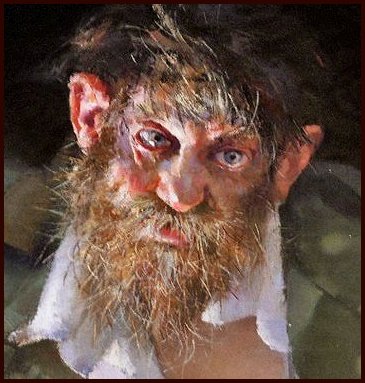
Robert Lenkiewicz: portrait of Edward Mackenzie,
whom he dubbed Diogenes.
_________
related pages on this site:
Antisthenes at Xenophon's Symposium
• the
diogenes sequence
•
Christianity
as a mystery religion in the Roman world
•
Original
Sin
•
Christianity
versus sexuality
•
A
note on Hell
•
A modern Diogenes
•
Omar
Khayy�m
•
The Bektashi Order of Dervishes
• Annotated
version of the rubáiyát of omar khayyám
•
Holy
Dogs and Dog-headed Saints
•The
dogs of Old Stamboul
|
A NOTE ON THE CATHARS Christianity has become the very antithesis of the outlook of Antisthenes and Diogenes. But Jesus himself almost certainly was not - although, of course, he was tragically, pathetically obsessed with the ludicrous idea life after death for humans (only), as is apparent even in the Gospel of Thomas. Cathars were latter-day Christian Gnostics, influenced by dualistic Zoroastrianism and Manichæanism, who denied the orthodox Christian dogma of the unique godhead. They were the closest that Christianity ever got to Sufism. Flourishing in the 11th to 13th centuries in south-west France, especially in Quercy, the Albigeois, Pyrenees and Languedoc, in Northern Italy and Bosnia, and in pockets elsewhere in France, they considered all creation to be a (Manichæan) struggle between Good and Evil: the world-we-know being the domain and creation of Satan, and the unseen (Platonic) world being the insubstantial realm of the Good God, who is without form or physical dimension or attribute. They considered Jesus to be not so much divine as an inspired human, and less a historical person than a concept, a model of how to lead a good life in this Satanic Realm. To the Cathars (and their Eastern counterparts the Bogomils) he was certainly not the Son of God, nor a divine entity. This made their theology refreshingly simple compared with that of the Catholic church. They believed that Satan had tricked 'pure spirits' from the ineffable realm of God into fleeing to his palpable, evil world, where he trapped them in prisons of flesh, ego and consciousness. But if these katharoi or pure spirits had managed not to yield to the destructive temptations of carnality, selfishness and perverted reason, and had "made a good end", they would be released from their earthly and hellish bondage and return to God as pure spirits re-uniting with and re-dissolving in Pure Spirit. If they did not make a "good end" to their temporal lives they would re-enter the cycle of suffering which Satan had created for his pleasure. Thus they believed that individuals had control over their own lives and were not at the mercy of the whimsical and unpleasant (not to say infantile) Catholic Godhead. They taught that there would be no Last Judgement, no Hell, and no resurrection of the dead: the world would end when the last of the Pure Spirits (or Angelic Souls) trapped in Satan's (or Satanel's) material world would pass into the 'spiritual world' from the material world. This process of disentanglement from the snares of materiality, ego, power, hierarcy and materialism would necessarily take a long time and involve the transmigration of souls through various mammals before entering the body of one who would become a perfectus or perfecta. It was for this reason that Cathars were strict vegetarians, but could eat fish and molluscs, because they did not penetrate each other, as mammals do, to reproduce. Like Jews and Bektashis, they did not believe that women - or followers of other religions - or any mammals - were inherently inferior, and condemned the blatant misogyny of the Catholic and Orthodox churches, just as they were appalled at the worship of relics, the liturgical use of Latin, and other instruments of power which were not successfully challenged until the Reformation. They also translated the Bible into the language of the people so that it could be read and discussed. They rejected as blasphemous the idea that God could come into the material world through a virgin, and regarded the Mass, the ludicrous doctrine of transubstantiation, and the newly-created cult of the Virgin Mary as cynical inventions to glorify the clergy and their 'love of great oblations'. Gleeful reports by inquisitors that they spat on the crucifix are not necessarily false, because they rejected as distasteful and blasphemous the whole quasi-cannibal Cult of Crucifixion which took over Christianity at an early stage. In this they were to a large extent supported by the Templars (soon to be themselves suppressed) who were sympathetic to Islam, a religion free of image-worship and (until the late 20th century) clerics who were potentates. Many thought that although Man was created by Satan/Lucifer as an instrument in and of the material world, speech - the Power of the Word - was the gift of God, the Logos which would enable the redemption of Mankind through a simple, unhypocritical asceticism: the Good Life. This did not require the amassing of goods or wealth, the building and bedecking of churches, the buying of indulgences, or the establishment of the totalitarian hierarchy which is unique to the Catholic Church amongst world religions. Their meetings were mostly in the open air, their prayers simple and their doctrines simplistically clear: The truth (the Logos ) will make you free; voce vita: we should practise what we preach. What comes from flesh is flesh, and spirit or holiness comes only from spirit and the spiritual realm. Of course truth is simply unbearable, and if it is not unbearable it is not truth - but the Cathars, being European, were not enlightened - or 'Cynical' (in the philosophical sense) - enough to realise this! Because they believed that one should live by the work of one's own hands and not by the work of others they were against all that Western Civilisation now stands for. They specialised in such crafts as weaving and cobbling as well as agriculture. But, like the early Christians (Paul and his business-network, and the Protestant Huguenots (and later the Quakers) who included a large proportion of textile-workers - and who founded the Irish linen and lace industries), they were very much into money and the interpenetrating obligations of trade. Their connections with fellow-Manichæans in Lombardy and with the Bogomils in Bosnia provided them with a network that was highly profitable - so profitable that after the Cathars were wiped out rumours persisted about their hoards of gold, a legend which was transferred to the Incas and the imaginary El Dorado. The Roman Catholic church always had a highly ambiguous attitude to money. Usury was condemned (until the reign of Pius IX in the 19th century) while indulgences were sold in their millions. Cathars were condemned for their 'avarice', yet bishops amassed huge sums through tithes and other means, in order to build vainglorious (or in the case of Albi, downright fascist-brutalist) cathedrals. Though Cathars considered the organised Catholic Church to be a vile Satanic institution, along with the Old Testament, Mass, marriage, church burial, priesthood and all hierarchy and everything organisational, they tended (perhaps for pragmatic, logistical reasons) not to be aggressive or confrontational. Their Sufic tolerance echoed that of contemporaneous Muslim Spain, and, like the Moors, they respected the Jews. Rightly considering the Catholic and Orthodox churches to be perverted heresies working very hard against Jesus' message, they referred to themselves as crestians or bons òmes (bonhommes) or bons chrétiens (these occur even now as surnames in France (as does Mauchrétien), while the word itself has been debased to crétin). Our term Cathar comes from Greek katharos meaning pure, untainted, and it was not used at the time, just as the word Crusade was not used at the time. Sympathetic outsiders talked not of chrétiens/crestians but of Parfaits (Perfecti) - and a fine potter I know in the Albigeois has the surname Perfetti. History, of course, is full of those (almost always men) with pretensions to Purity - in our own time, the Taliban (talib = pure). The heterogeneous and fragile nation-state of Pakistan means 'country of the pure'. But as Diogenes kept on saying, belief and faith are inevitably twinned with Hypocrisy. Extremely democratic, the bons crestians elected their local leaders, who could be female as well as male, and were termed Bishops. They had one ritual only, the Consolamentum, through which the Perfecti could introduce and initiate others into the Good Life. This involved baptism, laying-on of hands, kissing the Gospels and a symbolic explanation of the Lord's Prayer. There were few Perfecti and the Consolamentum tended to be accepted only by those who were near death and felt they could renounce Satan's Realm at the last minute, for after it came the Endura, when they were not supposed to eat, thus hastening the entry into God's World by starvation. This was the 'Good End', dismissed by Catholics as 'suicide'. Although the Consolation was not 'a passport to Heaven', it was considered a big step on the way there, ensuring that the Consoled would not endure another reincarnation in this world. Cathars considered that a blessing, whereas most people now, almost anywhere in the world, corrupted in so many ways by orthodox Christian thinking, think of life in this world as a 'gift' and - even - holy in itself. Needless to say, Cathars did not celebrate Christmas, Easter, the Assumption of the Virgin Mary, St Patrick's Day or HallowE'en! Nor did they permit oaths. Shaving was discouraged as well, and the male Perfects (two-thirds of the total, only one fifth of whom were gentry) had long beards often forked in the Syrian/Coptic/Irish style. This contrasted with the Catholic monks, who were gentry and were tonsured and shaved. Sex was discouraged since it created new souls for the Devil to dominate. St Augustine was originally a Manichæan, and his doctrine of Holy Sex was the enantiodromic opposite of the Manichæan: he taught that sex should be performed only by two saved souls in order to create another one to be saved from Original Sin. Cathar celibacy was, in fact, an attraction at a time when the openly-hypocritical Catholic clergy was sexually self-indulgent - from the illiterate rustic priest to the corrupt cardinal with his mistresses. But of course sexual abstinence rendered Cathars, like the Parsis (adherents of another dualistic religion emanatiung from Iran), fewer and fewer.
'Catharism' was successful only in certain - mostly lowland - areas of France: between Montpellier and Agen (especially the Lauragais East of Toulouse) but not in Guyenne; Quercy but not the Limousin or Auvergne; the Albigeois but not so much in high Rouergue; Champagne but not Picardy - and not in Provence. The 12th and 13th century monastic orders - Cistercians, Franciscans and the Cathar-exterminating Dominicans - were founded at least partly in response to Cathar puritan primitivism (though also because of dramatically-shifting demography and economics, and a lack of priests in the burgeoning towns). The Roman Catholic espousal of marriage as a sacrament (in 1215) seems to be one response to Cathar doctrine: anything which reeked of Manichæism must be removed or reversed. Thus orthodox Christianity stood on its head to deny the heterodox. This is a perennial feature of totalitarian religions. Certainly Calvin in Geneva somewhat later might be seen as an inheritor. The destruction of the Languedoc Cathars in the 'Albigensian Crusade' was sparked by their moving towards the end of the 11th century from a "mitigated" dualism which did not directly threaten the Catholic church and the expanding (and increasingly-totalitarian) papacy to an "absolute" dualism which was entirely at odds with Catholic doctrine which was at this time being rapidly invented almost year on year to attract the gullible, and make them ever more gullible until Luther came along. The Wars of Religion in France after the Reformation tended to be waged in exactly those areas where Catharism had been so bloodily expunged in the 13th and 14th centuries. When Pope Innocent III was unexpectedly elected in 1198, the Catholic church was in a parlous state. Jerusalem had just been taken back; the Second Crusade had collapsed in ignominy; The Emperor Barbarossa had drowned and the Moors had re-taken much of the North of Spain. He had to do something, somewhere - and the excision of the "cancer within" seemed the most achievable target. As a result, South-West France was caught in the pincers of a desperate Rome (to whose very gates Lombardic Catharism had spread) and a greedy Paris. The land-greedy barons of the dismal North of France viewed with delirious delight the prospect of the subjugation and annexation of a wealthy and exotic Mediterranean culture, and the result was the origin of disastrous modern French 'policies of assimilation'. Paris has never let go of its first colonial prize, though it was forced to depart from a similar annexation in Algeria. It was after the 'Albigensian Crusade' failed to excise the 'cancer' completely that Pope Innocent III instituted the 'Holy Inquisition' under his direct control and administered by one of the mendicant orders he had sanctioned: the Dominicans. It was their appalling and successful reign of terror which was the model for subsequent European dictatorships, culminating in that of Stalin, and exported to inspire other Satanic beings such as Mao Dzhe-Dong, Pol-Pot and Kim Il Sung. It was the Inquisition which wiped out Catharism - not only in France but in Northern Spain also (asylum for Cathar refugees), where the Moorish hegemony had bequeathed, just for a while, an extremely tolerant non-Islamic society. The symbol of its demise was the fall of the 'impregnable' Safe Mountain in the Pyrenees, Mont Ségur. Subsequently, Catharism was erroneously viewed as a kind of Occitanian nationalism, somehow intertwined with Troubadours and Courtly Love. It was relatively easy to find out if someone was a practising Cathar or not: one simply offered him or her red meat. If it was refused or eaten with anything less than gusto, they were condemned and usually tortured. Their 'confessions' included, of course, the fantasies of the torturers, as are all confessions extracted in this way: something that the Homeland Security "agencies" and indeed many politicians do not seem to have grasped. From the Cathar point of view, the Devil has won and his reign is supreme in a world teeming with his slaves. The Platonic-Manichæan world of Perfection seems like a childish fairytale. Diogenes, of course, dismissing all claptrap, would have said there was only one world - a bad one - and no possibility of redemption or even improvement. History bears him out, for all improvement is not only merely material, but enslaving and illusory. Nevertheless, the older I get the more inclined I become towards a Manichæan world-view... see also: http://www.the-orb.net/textbooks/crusade/albig.html |
now read about the persecution of the Knights Templar >
CREDO
yet another reworking of a third-century-BC poem
by Callimachus of Cyrene
Old points of view
expressed anew are crap.
Old sentiments recycled yet again,
banalities of love exposed like wounds in films,
are so much pap.
My writing's much too dissident to win a prize,
my thoughts don't come processed-flaccid from the system.
What majorities desire I just despise.
Anthony Weir, Emeritus Professor of Entropy,
University of Myself.
|
The ludicrous idea that non-being is essentially evil was enunciated to Europe by St Augustine. From this came the anathema on suicide, shared, of course, by the Humanists, who are Christians with a different, sterilised mumbo-jumbo. The imperative to save life at all costs (except, of course, in war whose purpose is annihilation of the enemy and its non-combatant population) has resulted in hideous hypocrisies, among them the hypocrisy of International Aid, which James Shikwati compares with internet malware. Yesterday I received a communication from Médecins sans Frontières (Doctors Unconstrained), informing me that they had 'saved' (note the religious overtone) some twenty-eight thousand starving children in Northern Burkina Faso. Saved them for what ? So that they will grow up on a poor diet in one of the poorest and most deprived countries in the world, probably drift from the encroaching Sahara to the filthy slums of the capital city, there to breed more children in misery, disease and despair ? For the 'aid' programmes of the rich countries ensure that the general population of Burkina Faso (and all 'developing' countries) remains helpless clients without any access to the country's wealth - even if there were any wealth in that country outside its kickback-rich ruling class. And in any case, I am assured by another communication that there will be no coral reefs left in fifty years' time - and no fish in the seas, either. And the whole of Burkina Faso will be a desert without a desert's minimal but hardy fauna. And its population will have tried to escape to the North or the South, where they will be interned in Refugee Camps until they die. Or sent back to languish in the violent slums of Ouagadougou. This
is the future that MsF is bestowing on the children whom they
'save'. This is the banality of good. How
does this do-gooder back-to-frontism compare with the random murder
employed by many 'terrorist' organisations ? Rather as years of
being a thinking vegetable in hospital compares with an easeful
death, or as a lingering non-life in the limbo of Death Row
|

A comment by a reader:
|
The human spirit has itself become mechanical in its pursuit of destruction. Through mechanisation, we have lost any claim to vitality. We are unthinking automata - while real machines, lacking vindictiveness and vengeance (not to mention horribly misplaced compassion) are 'kinder' than we are. The histories of the "great" religions are littered with massacres, slavery and hatred of the earth, and no consideration for non-human life, but plenty of incredible cruelty in general. Forget the dogma. Consider the real behaviour. The whole Abrahamic thing has been one huge necrophiliac festival of narcissism and sadism, as are most human endeavors, regardless of idealistic blabber. (I guess that makes it deeply personal.) As I have seen it practised, religion is just a feel-good delusion. It feels good to think yourself absolutely right about everything in a 'holy' context. Even atheists seem to parade the same arrogance as the religious. In their case it is harsh realism and ruthless necessity that give them their 'holiness'. The Christians had their vile Crusades, then the Inquisition. The 1500s to 1900 gave us the great Christian genocides and pogroms. The 20th century gave us the great atheist genocides. Islam is now going through its Inquisition phase. Hindus and Buddhists are starting to get in on the act. So now it's a mixed bunch killing damned near everything on the planet. The monotheisms turned suicide from a brave act of honour or awareness to a reviled act of despair. Islam has now seen these two opposing perceptions unite in the phenomenon of the suicide-bomber. I dare any of you who read this to think about how merciful and kind and 'liberal' you are as you purchase goods probably made with toxic ingredients by someone in slave conditions, ripped off, beaten, discarded after injuries, etc. Know-it-alls, both religious and atheist, should try a little contemplation, a little self-examination as you bite into the flesh of a young animal, ripped away from its grieving mother whose milk you drink, prodded, transported, beaten, stunned or slit or skinned alive, depending on your 'faith'. The plight of the powerless is the gauge of our quality, our rare mercy. Religions are the collective masks of the biopathic species: every -ism from Mithraism to Atheism. |
